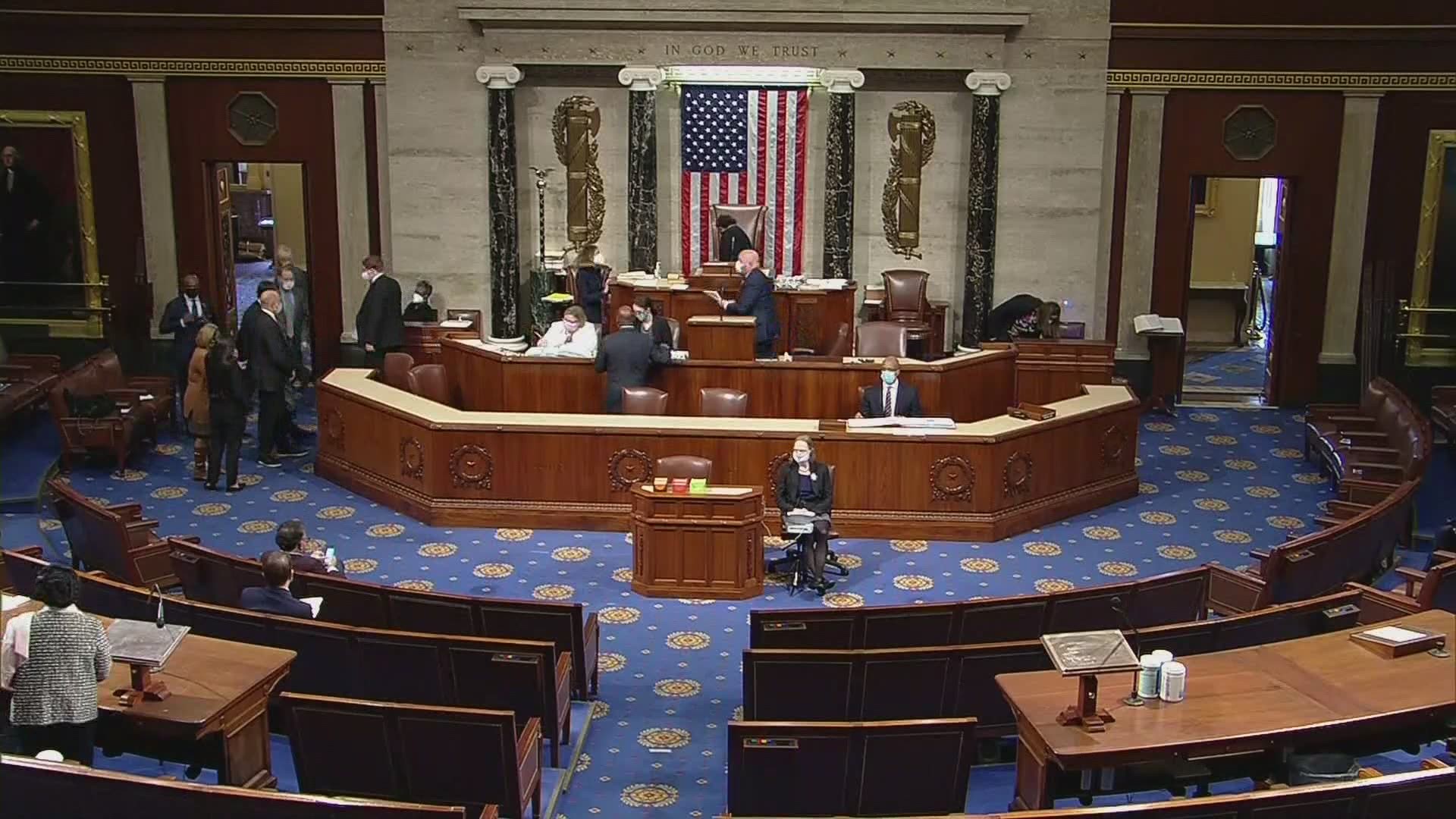WASHINGTON, D.C., USA — On Monday, a bipartisan group of U.S. senators unveiled two emergency COVID-19 relief bills that would provide nearly $1 trillion in relief to Americans amid the ongoing coronavirus pandemic. Sens. Susan Collins and Angus King were among the group who worked together for the past month—and even on Thanksgiving Day, Collins noted—to agree on the emergency legislation.
Collins said Monday the bills are a “Christmas miracle.”
“We have had a Christmas miracle occur in Washington. We worked night and day for over a month to put together an emergency COVID relief package. My hope is that our hard work will spur our leadership on both sides of the aisle to take our products and use them as the basis for a COVID relief package that is urgently needed by our struggling families, hard-hit small businesses, health care providers, Postal Service, schools, and so many others,” Collins said. “I'm particularly proud of the $300 billion small business provision that Senator Jeanne Shaheen and I led. It includes an extension of the Paycheck Protection Program, which has saved millions of jobs in this country, including 250,000 jobs in Maine alone. Surely we can come together and provide this relief before Christmas. The American people deserve no less.”
"These bills are not only bipartisan products, they are bicameral as well," Collins said. "My hope is that our hard work will spur our leadership on both sides." Sen. Mark Warner, D-Va., said it’d be “Scrooge-like” not to pass the relief bill before the holidays.
In addition to Collins and King, the bipartisan group included Joe Manchin, D-W.Va., Mark Warner, D-Va., Bill Cassidy, R-La., Jeanne Shaheen, D-N.H., Lisa Murkowski, R-Alaska, Mitt Romney, R-Utah, Maggie Hassan, D-N.H., Rob Portman, R-Ohio, and Dick Durbin, D-Ill.
The bills, which were split in two, would provide as much as $908 billion in relief to American students, families, businesses, workers, and health care providers during the coronavirus crisis.
One of the bills is a $748 billion aid package containing money for struggling businesses, the unemployed, schools, and for vaccine distribution.
The other bill proposes a $160 billion aid package for state and local governments and provisions shielding businesses from COVID-related lawsuits, a dynamic favored by Senate Republicans.
During a press conference Monday, King said the $748 billion bill has unanimous support among the group of senators. He said they’re not handing Congress a draft, but a bill that could be voted on tomorrow.
King said coming together in a bipartisan manner to work on something for the American people should be the norm, and it’s been one of the most difficult but rewarding experiences in his career.
“After weeks of negotiations marked by good-faith efforts on both sides of the aisle to strike a compromise, today we have reached an agreement that would provide hundreds of billions of dollars for Americans who are struggling,” King said. “This agreement extends unemployment benefits for workers who’ve lost their jobs due to the pandemic’s economic impact; provides another crucial lifeline for the nation’s small businesses, and strengthens our public health infrastructure as healthcare providers across the country prepare to deliver vaccine doses in the months ahead. Our agreement is far from perfect; I strongly would have preferred additional funding for unemployment, and would rather that the critical funds for state and local infrastructure were included in the overall package rather than broken out. However, we don’t have time to let the perfect be the enemy of the good. When you look at our initial framework, this final agreement isn’t a glass that’s half full -- this glass is eighty percent full. I support this measure because the American people are in desperate need of relief, and they don’t have time for months of Congressional haggling; they need action, now. This legislation should be viewed as a starting point, to get us through the worst of the long winter ahead – and in the next several months, Congress should continue negotiating in an effort to prepare additional relief legislation this coming spring.”
The path forward for their proposals — and for COVID-19 aid more generally — remains unclear. Parallel negotiations over virus relief and government funding are proceeding on the leadership level involving House Speaker Nancy Pelosi, D-Calif., and Treasury Secretary Steven Mnuchin. Senate Majority Leader Mitch McConnell, R-Ky., remains central to any agreement. Outstanding issues include a potential second round of direct payments to individuals, a plan for $300 bonus unemployment benefits, state and local aid, and the GOP-sought liability shield against lawsuits.
There's a hoped-for deadline of midnight Friday to deliver the completed package to President Donald Trump, which is when a partial government shutdown would arrive with the expiration of last week's temporary funding bill. But there's no guarantee that the massive year-end measure will be completed in time. If the talks drag, further temporary bills could be needed.
Top Democratic allies of President-elect Joe Biden came out in support of the $748 billion plan offered by the bipartisan group of lawmakers and hinted they won't insist on a pitched battle for state and local aid now.
“We cannot afford to wait any longer to act. This should not be Congress’ last COVID relief bill, but it is a strong compromise that deserves support from both Republicans and Democrats in the Senate," said Sen. Chris Coons, D-Del. “We cannot leave for the holidays without getting relief to those Americans who need it.”
House Speaker Nancy Pelosi, D-Calif., has insisted for months that state and local aid would be in any final bill, but as time is running out, Democrats appear unwilling to hold the rest of the package hostage over the demand. Several Democrats appeared at the bipartisan news conference endorsing the $748 billion package.
Watch the full press conference here:
The Associated Press contributed to this report.

